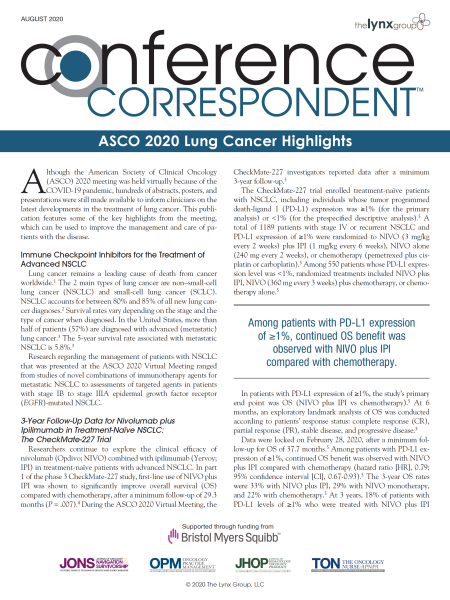Conference Correspondent

News, views, and coverage of important topics and discussions from oncology conferences and events.
Population-based personalized ovarian cancer risk stratification is feasible and acceptable. Participants reported high satisfaction without a negative impact on psychological health or quality of life. Read More ›
The level of CA 19-9, expression of HE4, and the presence of massive ascites or positive lymph nodes are important prognostic factors for overall survival in patients with ovarian clear-cell carcinoma. Read More ›
In the MIRRORS study, researchers aim to determine the feasibility of a randomized controlled trial of robotic interval debulking surgery for patients with ovarian cancer. While robotic surgery is unlikely to be suitable for all cases of ovarian cancer, researchers hope that robotic surgery may provide improved quality of life and recovery in selected women. Read More ›
Although the American Society of Clinical Oncology (ASCO) 2020 meeting was held virtually because of the COVID-19 pandemic, hundreds of abstracts, posters, and presentations were still made available to inform clinicians on the latest developments in the treatment of lung cancer. This publication features some of the key highlights from the meeting, which can be used to improve the management and care of patients with the disease.
Read More ›In a small subgroup of patients from the phase 3 ARIEL3 trial, rucaparib improved a number of clinically meaningful end points in addition to progression-free survival. Read More ›
An analysis of patients with recurrent ovarian carcinoma supports the approved starting dose of rucaparib at 600 mg twice daily. Read More ›
Analysis of mutations in homologous recombination deficiency–associated genes in ovarian cancer suggest PARP inhibitors may only benefit a small subset of patients. Read More ›
Although many patients eligible for maintenance therapy do not receive it, research shows that when utilized, maintenance with PARP inhibitors or bevacizumab extends survival. Read More ›
One method used to extrapolate long-term survival data from a phase 3 clinical trial aligned closely with overall survival data from the SEER database, suggesting its utility in informing future treatment and management models when trial data are not yet mature. Read More ›
A real-world, retrospective analysis from community oncology practices reveals a higher clinical and financial burden with PARP inhibitors than reported in clinical trials. Read More ›


